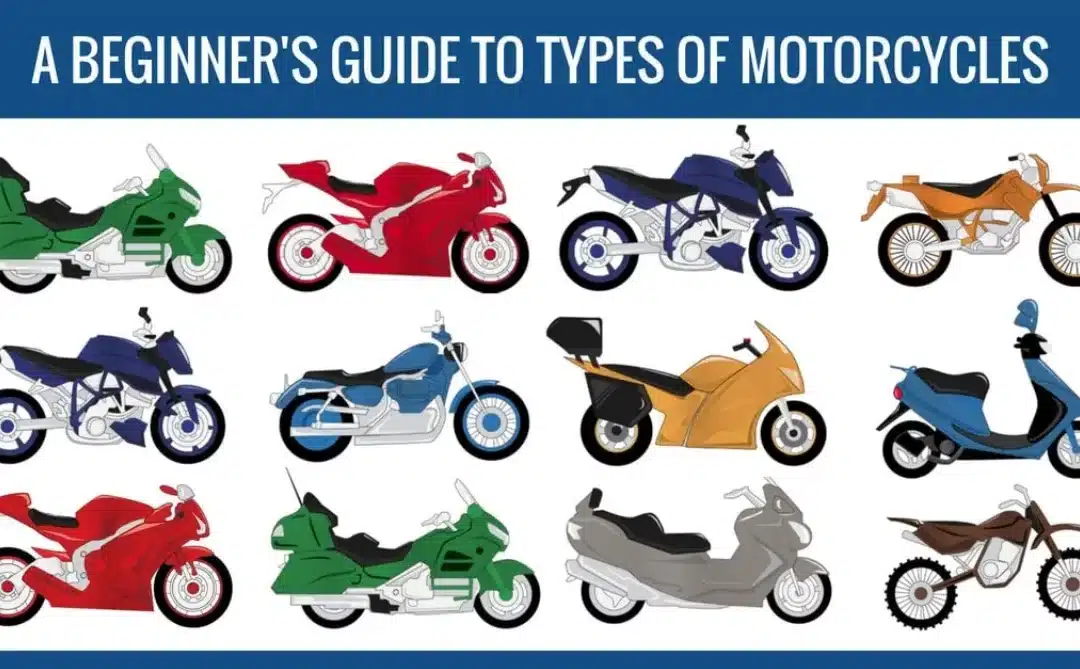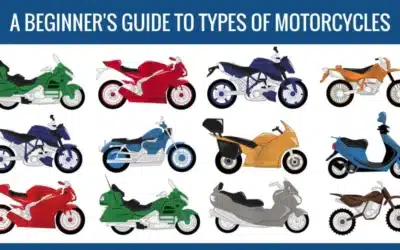The law in 47 states makes it mandatory to carry insurance on your motorcycle. In Florida, Montana, and Washington, where it’s not required by law, it’s still probably a good idea to have insurance. There are 8.4 million motorcycles registered in the United States, representing only 3 percent of the total number of registered motor vehicles. Still, motorcycle riders are 29 times more likely to be killed in a collision than are the occupants of other types of vehicles. Whether you live in a state that requires motorcycle insurance or not, your insurance decision is easier if you understand the various types of coverage insurance companies offer.
Need Motorcycle Insurance?
Enjoy your ride while feeling safe with the best insurance coverage.
Is Motorcycle Insurance Required by Law?
Whether you own a motorcycle, car or truck, if you plan to operate it on public roads, it must be registered with the appropriate agency in your state — typically the DMV. One of the requirements for registration of a motor vehicle, including a motorcycle, in the vast majority of states, is proof of insurance coverage meeting the legally required minimum coverages for bodily injury and property damage.
Bodily injury and property damage insurance protects you against claims filed by other parties in the event of an accident caused by you. If another party suffers physical injuries and prove you were at fault, the financial burden of compensating them is met by your insurance company under the bodily injury coverage. The damage you cause to another vehicle or property is paid through the property damage coverage.
If you live in a state with mandatory motorcycle insurance laws, the operation of a motorcycle without the minimum insurance coverage is a violation of the law. Three states, Florida, Montana, and Washington do not have laws requiring motorcycle owners to show proof of insurance to register them. If you live in one of those states, do you need motorcycle insurance?
Unless you’re prepared to be financially responsible for claims from damage caused by an accident that was your fault, you should have motorcycle insurance even in states in which it is not mandatory. A lawsuit for personal injuries could result in a substantial judgment putting your income and assets at risk of being seized to satisfy it.
Motorcycle Liability Insurance
States with mandatory motorcycle insurance laws require liability insurance, the term used for a combination of bodily injury and property damage coverages. Some states might require other types of coverage, so it’s a good idea to check with your state’s motor vehicle office.
Bodily injury coverage pays claims made by other parties who are injured or killed in an accident caused by you. Property damage coverage pays claims made by the owners of other vehicles, fences, buildings, and other forms of property that are damaged by your motorcycle in an accident. Keep in mind that property damage and bodily injury coverages do not pay benefits to you for damages you suffer in an accident.
If you are involved in a collision with your motorcycle, your liability insurance company will defend you when claims are filed for bodily injuries or property damage. A claims adjuster for the insurance company handles the claim on your behalf and determines the best way to resolve it. If it cannot be settled and a lawsuit is filed, your motorcycle insurance policy obligates the insurance company to furnish legal representation to handle your defense.
No matter the reason for your decision to invest in insurance, you have a few choices to make about the types and the company you choose to go with. An important consideration to keep in mind about coverage options and the insurance companies competing for your motorcycle insurance business is the cost.
Increasing bodily injury and property damage beyond the minimums required by the law in your state offers more protection in the event of an accident. Still, it would be best if you also weighed the additional cost involved. Shopping and comparing rates with different insurance carriers is essential to ensure you are getting the best deal that is available.
Mandatory minimums represent the least amount of liability insurance coverage you need to comply with state law. They’re expressed as a series of three numbers. For example, mandatory motorcycle insurance coverage in California presents as 15/30/5. The numbers translate into the following coverage requirements:
- $15,000 is the maximum your insurance company will pay to one person injured or killed in an accident that was your fault.
- $30,000 is the maximum the carrier will pay for claims filed on behalf of two or more people in one accident.
- $5,000 is the maximum the policy will be toward a property damage claim from a single accident.
Increasing the liability insurance coverage on your motorcycle above the minimums required by state law depends upon how much protection you want to have against claims. You should take into consideration what you have to protect when deciding to increase your coverage. Someone with a home, car, and other assets might opt for increased coverage limits as opposed to someone with no assets to protect in the event of a lawsuit stemming from an accident.
Guest Passenger Liability Coverage
The liability insurance on your motorcycle might not extend coverage to someone riding as a passenger on your bike in the event of an accident. It depends upon the laws in your state. California, for example, makes it mandatory for you to have guest passenger coverage, so it’s included in the liability insurance you carry.
In states where it is not mandatory, guest passenger insurance is available as optional coverage. Guest passenger coverage pays the medical expenses of your passenger only if the accident is your fault. If your passenger is injured due to the fault of another driver, a claim for compensation by your passenger is handled by the other driver’s insurance company.
State-by State Motorcycle Insurance Requirements
| State | Minimum Liability Requirements | Motorcycle Insurance Required? |
|---|---|---|
| Alabama | 25/50/25 | Yes |
| Alaska | 50/100/25 | Yes |
| Arizona | 15/30/10 | Yes |
| Arkansas | 25/50/25 | Yes |
| California | 15/30/5 | Yes |
| Colorado | 25/50/15 | Yes |
| Connecticut | 25/50/25 | Yes |
| Delaware | 25/25/10 | Yes |
| Florida | N/A | No |
| Georgia | 25/50/25 | Yes |
| Hawaii | 20/40/10 | Yes |
| Idaho | 25/50/15 | Yes |
| Illinois | 25/50/20 | Yes |
| Indiana | 25/50/10 | Yes |
| Iowa | 20/40/15 | Yes |
| Kansas | 25/50/10 | Yes |
| Kentucky | 25/50/10 | Yes |
| Louisiana | 10/20/10 | Yes |
| Maine | 50/100/25 | Yes |
| Maryland | 20/40/10 | Yes |
| Massachusetts | 20/40/5 | Yes |
| Michigan | 20/40/10 | Yes |
| Minnesota | 30/60/10 | Yes |
| Mississippi | 25/50/25 | Yes |
| Missouri | 25/50/10 | Yes |
| Montana | N/A | No |
| Nebraska | 25/50/25 | Yes |
| Nevada | 15/30/10 | Yes |
| New Hampshire | 25/50/25 | Yes |
| New Jersey | 15/30/5 | Yes |
| New Mexico | 25/50/10 | Yes |
| New York | 25/50/10 | Yes |
| North Carolina | 30/60/25 | Yes |
| North Dakota | 25/50/25 | Yes |
| Ohio | 25/50/25 | Yes |
| Oklahoma | 25/50/25 | Yes |
| Oregon | 25/50/20 | Yes |
| Pennsylvania | 15/30/5 | Yes |
| Rhode Island | 25/50/25 | Yes |
| South Carolina | 25/50/25 | Yes |
| South Dakota | 25/50/25 | Yes |
| Tennessee | 25/50/15 | Yes |
| Texas | 60/25/30 | Yes |
| Utah | 25/65/15 | Yes |
| Vermont | 25/50/10 | Yes |
| Virginia | 25/50/20 | Yes |
| Washington | N/A | No |
| West Virginia | 25/25/50 | Yes |
| Wisconsin | 25/50/10 | Yes |
| Wyoming | 25/50/20 | Yes |
| Washington DC | 25/50/10 | Yes |
Additional Motorcycle Insurance Coverages
Insurance companies offer more than just liability insurance to owners of motorcycles. The following are some of the coverages offered by insurance companies:
- Underinsured/Uninsured Motorist: Unlike liability insurance that pays the claims other people, underinsured and uninsured motorist coverages protect you. If you are injured in an accident caused by an uninsured motorist or a motorist whose insurance coverage is insufficient to pay the damages you incur, uninsured and underinsured coverages are intended to provide compensation to you.
- Comprehensive Insurance: If your motorcycle is stolen or is damaged in a non-collision incident, such as a tree limb falling on it, comprehensive coverage pays the cost of repair or replacement of your motorcycle.
- Collision Coverage: If your motorcycle is damaged in an accident, collision coverage pays for its repair or replacement regardless of who was at fault in causing the accident. The cost of collision or comprehensive coverage depends in part on the deductible you select. A deductible is the amount of money you must put toward the cost of repairs or replacing the motorcycle. Higher deductibles usually lower the cost of the policy.
- Medical Payments: This optional coverage pays your medical expenses for injuries you suffer as a result of an accident. Payments are made regardless of who might have been at fault in causing the accident.
Other coverages you might decide to choose when shopping for motorcycle insurance offer roadside assistance and towing services in the event of a collision or mechanical breakdown. If you invest a lot of time and money into customizing your motorcycle, the additional accessories can be covered against damage through optional equipment coverage.
Best Motorcycle Insurance Companies in 2024
Whether it is required in your state or not, motorcycle insurance offers financial protection in the event of an accident. Liability insurance protects you against financial ruin if you are at fault in causing an accident resulting in death or injuries to others. Optional coverages (such as medical payments and collision) provide you with the peace of mind in knowing you’ll be compensated if you are injured, or your motorcycle is damaged in a crash.
Need Motorcycle Insurance?
Enjoy your ride while feeling safe with the best insurance coverage.








